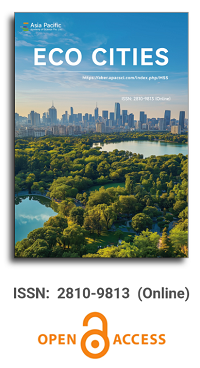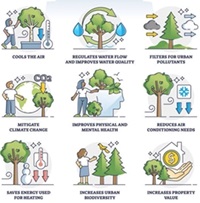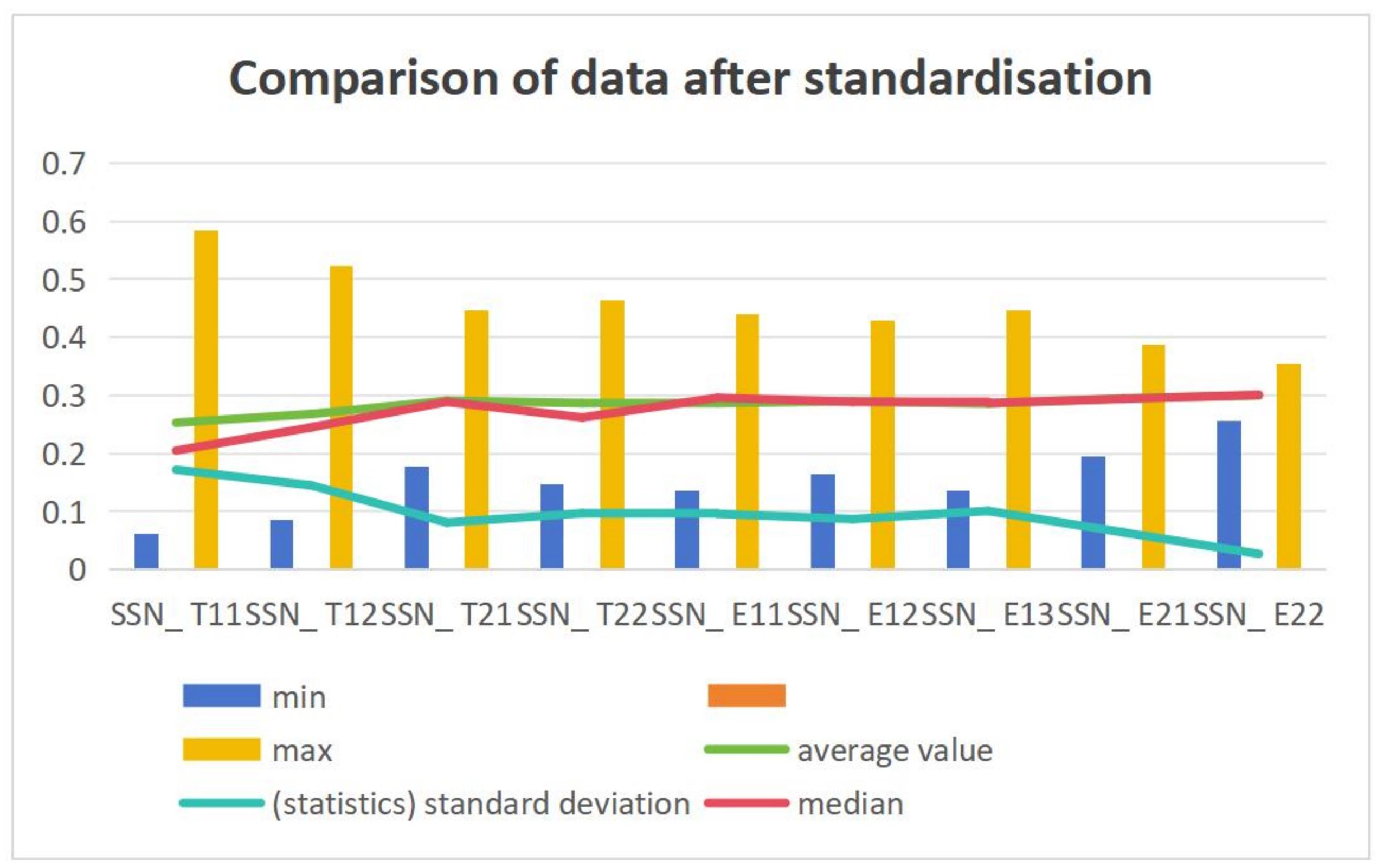


Urban law and sustainable cities: Reasonable analysis of the case in the Republic of Ecuador
Vol 1, Issue 1, 2020
Download PDF
Abstract
The purpose of this article is to analyse the current relationship between urban law and sustainable cities, based on concepts of a general nature, the case of Ecuador. In this regard, the current reality in Ecuador is a model, because there are a limited number of appropriate legal regulations, the lack of practice in the academic community of urban planning law, the lack of policies to implement these regulations and, in your case, sanctions for non-compliance. From another perspective, this situation provides the possibility to propose real policies conducive to sustainable urban development. Finally, the purpose of this study is to test the following hypothesis, that is, the laws and regulations of the urban law are not truly autonomous, enough, consistent and appropriate, and can not guarantee the sustainable urban development. We will take the realistic temporal and spatial framework of Ecuador as a reference.
Keywords
References
- Echebarría Miguel C, Aguado Moralejo I. La planificación urbana sostenible (Spanish) [Sustainable urban planning]. Cuadernos de Antropología-Etnografía 2003; 24: 643–660.
- Rincón Córdoba JI. Planes de ordenamiento territorial, propiedad y medio ambiente (Spanish) [Land use, property and environmental plans]. República de Colombia: Digiprint Editores EU; 2012.
- Tamayo Vallvé ML. Derecho urbanístico y medio ambiente: Hacia el desarrollo urbano sostenible (Spanish) [Urban planning law and the environment: towards sustainable urban development]. Madrid: Dykinson; 2006.
- Departamento de Ordenación del Territorio, del Medio Ambiente. Criterios de sostenibilidad aplicables al planteamiento urbano (Spanish) [Sustainability criteria applicable to urban planning] [Internet]. Navarra: Gobierno Vasco; 2003. Available from: https://www.euskadi.eus/web01-a2inguru/es/contenidos/documentacion/guia_planeamiento_1/es_doc/index.shtml.
- Badii MH, Guillen A, Fernández LG, et al. La Urbanización en relación con el desarrollo sustentable (Spanish) [Urbanization in relation to sustainable development]. Revista Daena (International Journal of Good Conscience) 2017; 12(1): 69–94.
- Fernández Rodríguez TR. Manual de derecho urbanístico (Spanish) [Manual of urban planning law]. 25th ed. Madrid: Civitas; 2017.
- Seto KC, Güneralp B, Hutyra L. Global forecasts of urban expansion to 2030 and direct impacts on biodiversity and carbon pools. Proceedings of the National Academy of Sciences 2012; 109(40): 16083–16088.
- United Nations. New urban agenda, HABITAT III. Quito: United Nations; 2017.
- Carrión Mena F. Ciudad, memoria y proyecto (Spanish) [City, memory and project]. República del Ecuador: Crearimagen; 2010.
- López Velarde O. El futuro de la legislación urbana en las entidades federales de México (Spanish) [The future of urban legislation in Mexico’s federal entities]. México: Ciudad Universitaria; 2011. p. 3–32.
- De las Rivas Sanz, Marinero A, Santos Ganges L. Ecología y ciudad: buscando modelos urbanos más sostenibles: Lema del XII Congreso Iberoamericano de urbanismo (Salamanca 2006) (Spanish) [Ecology and city: searching for more sustainable urban models: Theme of the XII Iberoamerican Congress on Urbanism (Salamanca 2006).]. Revista del Instituto Universitario de Urbanística de la Universidad de Valladolid 2008; (11): 235–245.
- Oszlak O. Merecer la ciudad. Los pobres y el derecho al espacio urbano (Spanish) [Deserving the city. The poor and the right to urban space]. Buenos Aires: CEDES; 1991.
- López Ramón F. Introducción al derecho urbanístico (Spanish) [Introduction to urban law]. España: Marcial Pons; 2013.
- Castro-Pozo H. Derecho urbanístico (Spanish) [Urban law]. República de Perú: Editora Jurídica Grijley; 2007.
- Tarrago M. La ciudad y el urbanismo (Spanish) [The city and urban planning]. España: Manual de gestión municipal democrática; 1987.
- Rivero Ysern JL. Manual básico de derecho urbanístico (Spanish) [Basic manual of urban planning law]. Reino de España: Editorial Tecnos; 2018.
- Ramírez Trevino A, Sánchez Nunez JM. Enfoques de desarrollo sostenible y urbanismo (Spanish) [Approaches to sustainable development and urban planning]. Revista Digital Universitaria 2009; 10(7).
- Velazco M. Acerca del derecho urbanístico (Spanish) [About urban law]. La Habana: Ediciones ONBC; 2012.
- Galvis F. Manual de derecho urbanístico (Spanish) [Urban law manual]. República de Colombia: Editorial Temis; 2014.
- Wyrobisz A. La ordenanza de Felipe II del año 1573 y la construcción de ciudades coloniales españolas en la América (Spanish) [Philip II’s ordinance of 1573 and the construction of Spanish colonial cities in America]. Estudios Latinoamericanos 1980; 7: 11–34.
- Jiménez V, Hidalgo R, Campesino A, et al. Normalización del modelo neoliberal de expansión residencial más allá del límite urbano en Chile y España (Spanish) [Normalization of the neoliberal model of residential expansion beyond the urban boundary in Chile and Spain]. Revista EURE 2018; 44(132): 27–46.
- Gutiérrez J. Planeación urbana en México: Un análisis crítico sobre su proceso de evolución (Spanish) [Urban planning in Mexico: A critical analysis of its evolution process]. Urbano 2009; 12(19): 47–63.
- Calvo M. Sostenibilidad en el urbanismo: Una propuesta (Spanish) [Sustainability in urban planning: A proposal]. Ciudad y Territorio: Estudios Territoriales 2006; 38(147): 61–84.
- Girardet H. Ciudades: Alternativas para una vida urbana sostenible (Spanish) [Cities: Alternatives for sustainable urban living]. España: Celeste Ediciones; 1992.
- Rueda S. Un nuevo urbanismo para una ciudad más sostenible (Spanish) [A new urbanism for a more sustainable city]. Encuentro de Redes de Desarrollo Sostenible y de Lucha contra el Cambio Climático; 2005; Victoria-Gasteiz.
- Moreno Sánchez E. Indicadores para el estudio de la sustentabilidad urbana en Chimalhuacán, Estado de México (Spanish) [Indicators for the study of urban sustainability in Chimalhuacán, State of Mexico]. Estudios sociales 2014; 22(43): 159–186.
- García S, Guerrero M. Indicadores de sustentabilidad ambiental en la gestión de espacios verdes: Parque urbano Monte Calvario, Tandil, Argentina (Spanish) [Environmental sustainability indicators in the management of green spaces: Monte Calvario urban park, Tandil, Argentina]. Revista de Geografía Norte Grande 2006; (35): 45–57.
- Rueda S. Ecología urbana (Spanish) [Urban ecology]. Barcelona: Beta Editorial; 1995.
- Llop JM, Cruz LV. El derecho a la ciudad en el contexto de la agenda urbana para ciudades intermedias del Ecuador (Spanish) [The right to the city in the context of the urban agenda for Ecuador's intermediate cities]. Ecuador: Imprenta de la Universidad de Cuenca; 2017.
- Ruiz ME, Maritan GG. Los planes de ordenamiento territorial y urbanismo: Principales consideraciones sobre su naturaleza jurídica (Spanish) [Land use and urban development plans: Main considerations on their legal nature]. Town Planning 2012; 1: 1–25.
- Escobar Rodríguez R. Derecho urbanístico chileno: Régimen de fuentes formales y conflictos normativos (Spanish) [Chilean urban planning law: Regime of formal sources and regulatory conflicts] [Master’s thesis]. Santiago de Chile: Pontificia Universidad Católica de Chile; 2016.
- Senplades. Plan nacional de desarrollo para el buen vivir (PNBV), 2013–2017 (Spanish) [National development plan for good living, 2013–2017]. Quito; 2013.
- López Velarde O. Nociones básicas de derecho Urbanístico Mexicano (Spanish) [Basic notions of Mexican Urban Law]. Revista de Derecho Notarial Mexicano 1991; (102): 179–209.
Supporting Agencies
Copyright (c) 2020 José Albert Márquez, Jaime Alfredo Alarcón Zambrano
License URL: https://creativecommons.org/licenses/by/4.0/

This site is licensed under a Creative Commons Attribution 4.0 International License (CC BY 4.0).

Chinese Academy of Sciences, China
Indexing & Archiving
Asia Pacific Academy of Science Pte. Ltd. (APACSCI) specializes in international journal publishing. APACSCI adopts the open access publishing model and provides an important communication bridge for academic groups whose interest fields include engineering, technology, medicine, computer, mathematics, agriculture and forestry, and environment.



.jpg)

.jpg)



